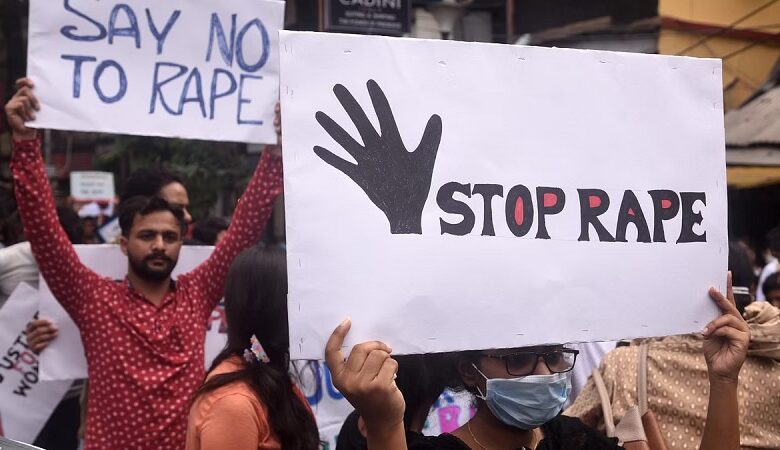
By AGNIBEENA GHOSH
In a shocking development, the suspect involved in the heinous rape and murder of a five-year-old girl in Kerala last week has a troubling criminal history. The Kerala state police disclosed on Tuesday that Ashfaq Alam, the accused, was previously arrested in a POCSO (Protection of Children from Sexual Offences) case in New Delhi five years ago.
According to reports, Ashfaq Alam had been imprisoned for one month in connection with the earlier crime and was subsequently released on bail. Aluva Rural Superintendent of Police, Vivek Kumar, confirmed that Ashfaq Alam had been arrested by Ghazipur police in Uttar Pradesh in 2018 for attempting to sexually molest a 10-year-old girl in that region.
The revelation of Ashfaq Alam’s prior involvement in a POCSO case raises serious concerns about the effectiveness of the criminal justice system in dealing with repeat offenders and protecting vulnerable children. The fact that he was released on bail after a brief period of incarceration in the earlier case calls into question the adequacy of measures to prevent potential reoffending.
Cases of sexual offenses against minors demand the utmost diligence from law enforcement and judicial authorities. The safety and well-being of children must be a top priority, and it is essential to address the root causes of such offenses and ensure the perpetrators face appropriate consequences for their actions.
The recurrence of sexual offenses committed by the same individual highlights the need for comprehensive and thorough background checks during the bail and parole processes. Assessing the risk posed by the accused to society and particularly to children should be a key factor in determining their release.
In the wake of this distressing revelation, it becomes imperative for authorities to reevaluate their approach to handling cases involving child sexual abuse. Enhanced coordination between various state and central agencies can facilitate better information sharing and more robust tracking of repeat offenders.
Moreover, efforts to create awareness about child protection laws and the importance of reporting suspicious behaviour should be intensified. Communities, schools, and families must actively participate in creating a safe environment for children and encourage open conversations about safety and consent.
Additionally, establishing and enforcing strict guidelines for the monitoring and rehabilitation of individuals convicted of sexual offenses is crucial to prevent recidivism. This includes effective counselling and therapy programs designed to address the root causes of such criminal behaviour.
It is essential to acknowledge that preventing and addressing sexual offenses against children requires a multifaceted and collaborative approach. Society at large must unite to protect its most vulnerable members and ensure that justice is served for the victims and their families.
Moreover, it is high time for lawmakers and policymakers to revisit the existing laws and regulations related to child protection and sexual offenses. Stringent penalties and more stringent monitoring mechanisms may act as a deterrent and discourage potential offenders.
The case of Ashfaq Alam underscores the urgency of strengthening the POCSO Act and ensuring its effective implementation across the country. Amendments and reforms should prioritize the speedy disposal of cases and prioritize the rights and safety of the victims.
As a nation, we must reflect on the current state of child protection and take collective responsibility for safeguarding the future generation. Only through collective efforts and unwavering determination can we create a society where children can grow up free from fear and exploitation.






